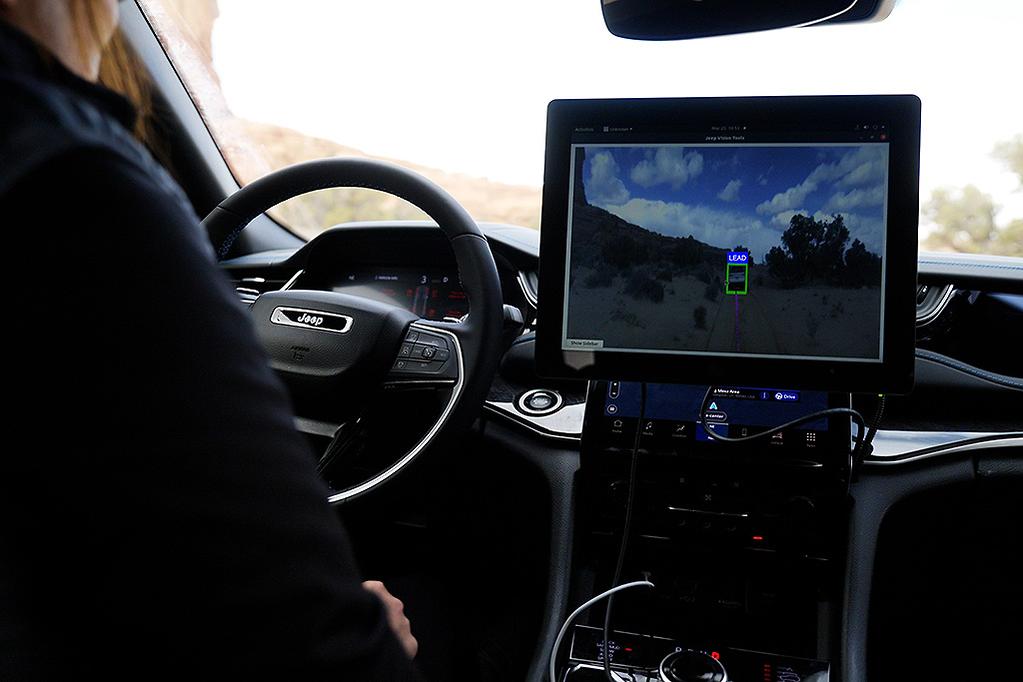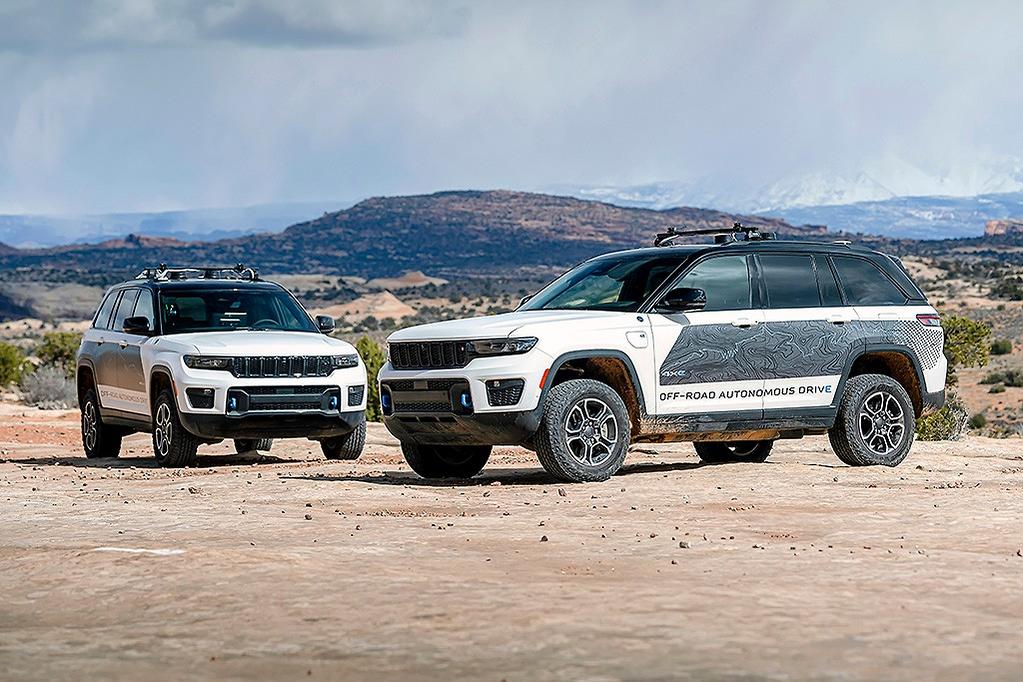Jeep is pushing the boundaries of its “freedom” mantra by introducing self-driving technology to its lineup. The company recently unleashed a pair of self-driving Jeep Grand Cherokee SUVs on the challenging off-road trails of Moab, Utah.
While some may question the need for autonomous driving capabilities in off-road environments, Jeep CEO Christian Meunier believes that these features and technologies will find practical applications both on and off the trail, in a wide range of driving conditions. The self-driving capabilities are expected to appeal to both experienced off-road enthusiasts and newcomers, instilling confidence in those who are new to specific trails or feel uncertain about navigating them.
The two Jeep Grand Cherokee 4xe models are equipped with advanced military-grade sensors that feed data to artificial intelligence (AI) software, enabling the SUVs to “see” their surroundings. While the accompanying video doesn’t showcase the usual extreme off-road maneuvers associated with Jeep vehicles, it demonstrates the autonomous SUVs confidently tackling rocky ascents and sandy trails, with the steering wheel moving on its own.

In one scene, a tablet is shown remotely controlling one of the vehicles. The tablet displays a video feed of what the Jeep “sees” and offers basic controls for adjusting vehicle speed and lateral angles, alongside real-time speed and angle information. The technology suggests that owners could potentially exit their vehicles during challenging trail sections and use their smartphones to slowly guide the vehicle through obstacles from a safe distance.
Jeep plans to release more footage and details about the testing and development of its autonomous off-road driving systems in the coming months. However, based on the initial demonstration, the technology appears promising.
Neda Cvijetic, head of AI and autonomous driving at Stellantis (Jeep’s parent company), stated that testing these off-road autonomy features in Moab presents challenges that surpass those encountered in on-road autonomy. The company’s engineers are excited by the opportunity to push the boundaries of autonomous off-road capabilities.

Jeep has been actively working on autonomous off-road technology for several years. In mid-2021, the company unveiled an electric Jeep Wrangler concept that showcased driverless capabilities, allowing occupants to recline in the back and enjoy stargazing while the vehicle autonomously navigated through rugged terrain. Jeep has also explored the concept of autonomous off-road driving for other purposes, such as having the vehicle meet hikers at the end of a hike with supplies and camping gear.
Jeep is not alone in its pursuit of autonomous off-road capabilities. Other SUV-focused brands, like Land Rover, have invested significant time and resources into developing self-driving technology. Land Rover has partnered with Nvidia, a leading automotive GPU supplier, to accelerate its autonomous vehicle program. Audi has also shown interest in AI-powered off-road vehicles, as evidenced by the Audi AI:Trail concept introduced in 2019.

